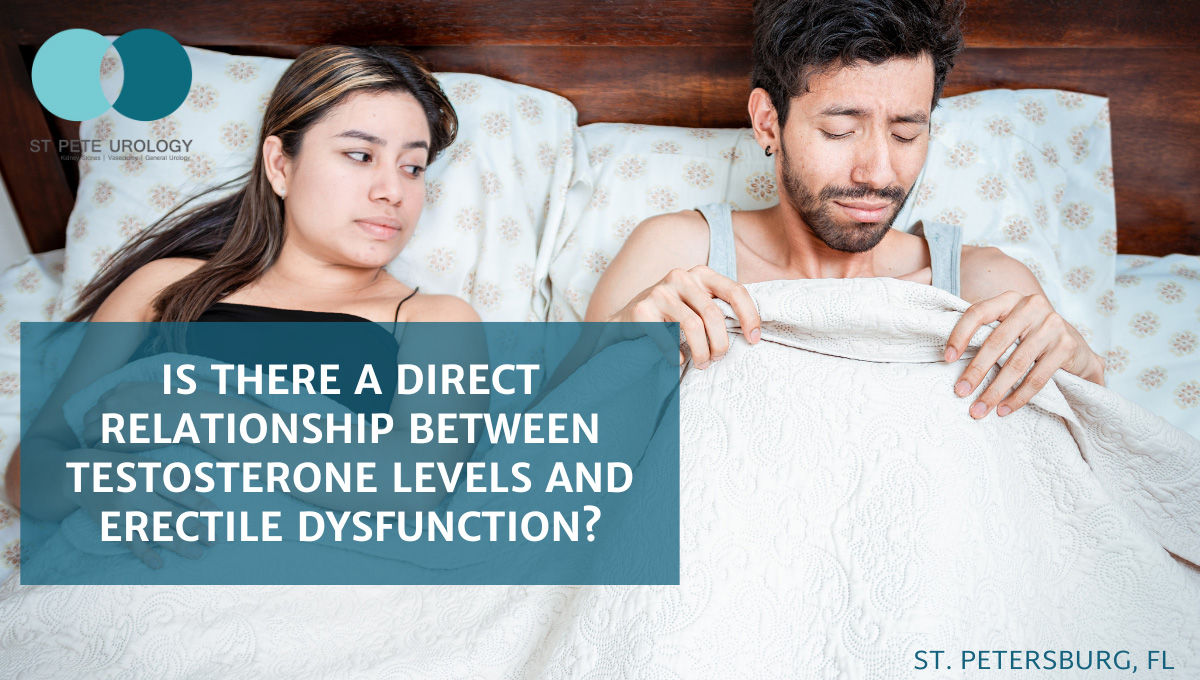Can obesity cause erectile dysfunction? Learn about the link between obesity and ED, and discover strategies for better overall well-being.
Continue readingIs there a Direct Relationship Between Testosterone Levels and Erectile Dysfunction?
Is there a direct relationship between testosterone levels and erectile dysfunction? There are a number of factors that can cause ED.
Continue readingFacts About Vasectomy Reversal
Post-Surgical Expectations
The procedure itself can take anywhere from 2 to 4 hours, in addition to a couple more hours for the anesthesia to wear off. In cases where the vas deferens tubes and epididymis are blocked, the surgery may take longer.
Pain medication will be administered immediately after the procedure to take care of any pain or discomfort. Once your doctor approves it, you will be sent home the same day of the surgery. Most patients return to their regular activities 21 days after the vasectomy reversal.
Results
Although the majority of people that undergo vasectomy reversal surgery are successful, the amount of time that has passed since the vasectomy can affect results. Doctors believe people have a greater chance of success if the vasovasostomy is performed within 10 years of the vasectomy. As time passes, problems such as blocked tubes or formation of antibodies to sperm are more likely to develop.
In most cases, vasectomy reversal surgery:
- Enables pregnancy in 50% of patients.
- Is most successful when performed within 3 years of the vasectomy.
- Leads to conception in 30% of patients if the procedure is done before 10 years of the vasectomy.
Risks
Some of the risks associated with vasectomy reversal surgery include:
- Infection
- Swelling and edema in the scrotum.
- Arterial or nerve damage in the scrotum.
Before Deciding on Vasectomy Reversal Surgery
Before opting for vasectomy in St Petersburg, your physician will need to determine whether you are fertile. This can be done with a before and after test that checks your semen for sperm antibodies. If there are antibodies present, the chances of pregnancy are low and an alternative method such as in vitro fertilization may be recommended.
You can speak to a specialist at St Pete Urology for more information about vasectomy reversal surgery. Visit https://stpeteurology.com for more information on the procedure.
What’s the Cause of Erectile Dysfunction?
Factors that increase the risk of arteriosclerosis include:
- Diabetes
- Hypertension
- High Cholesterol Levels
- Smoking
Diabetes
Approximately 60% of men with diabetes mellitus suffer from erectile dysfunction. This is because increased levels of glucose in the blood cause damage to nerves and blood vessels in the body. As a consequence, blood flow is reduced and impulses of the nerve are impaired, preventing a successful erection.
Medication
More than 200 prescription drugs can cause ED as a side effect. These include drugs for hypertension, heart problems, depression, and sedation. Over-the-counter medication, alcohol abuse, and illegal drug use are also factors that contribute to impotence.
Hormone Disorders
Hormone imbalances make up for less than 5% of erectile dysfunction cases. Low levels of testosterone in the body can cause decreased sex drive and lead to impotence. Testosterone deficiency can also be caused by an underlying health condition such as a pituitary gland tumor. In addition to low testosterone, renal and liver diseases are also possible factors of ED.
Psychological Problems
Psychological problems accounts for a big percentage of erectile dysfunction in younger men. However, both younger and older men can be affected by such conditions. Common psychological issues that lead to a low sex drive include; stress, anxiety, guilt, worry, and depression.
Visit St Pete Urology at https://stpeteurology.com for more information about erectile dysfunction causes, symptoms, diagnosis, and treatment options.
Erectile Dysfunction Overview
Video transcription:
“Erectile Dysfunction or ED is the inability of a man to achieve or maintain an erection sufficient for his or her partner’s sexual needs. Most men experience this at some point in their lives usually by age 40. Incidence of the disorder generally increases with age. ED affects about 5% of men in their 40’s, and 15 to 25 percent of men by the age of 65. 50% of men over the age of 40 may experience transient ED and inadequate erection. Physical or psychological stimulation or arousal result insignificant blood flow to the penis. The arteries in the penis supply blood to erectile tissue which becomes engorge and expands as a result of the increase blood flow and pressure. This constricts the fibrous elastic sheets or tunica that cinch to prevent blood from leaving the penis during erection. Reduced blood flow to the penis and nerve damage are the most common physical causes of erectile dysfunction. Underlying condition associated with erectile dysfunction include the following: Vascular disease, diabetes, drugs,hormone disorder, neurological conditions, pelvic trauma, surgery or radiation therapy, Pyrenees disease, venous sleep or psychological conditions.”
Click here to set an appointment with your local urologist



